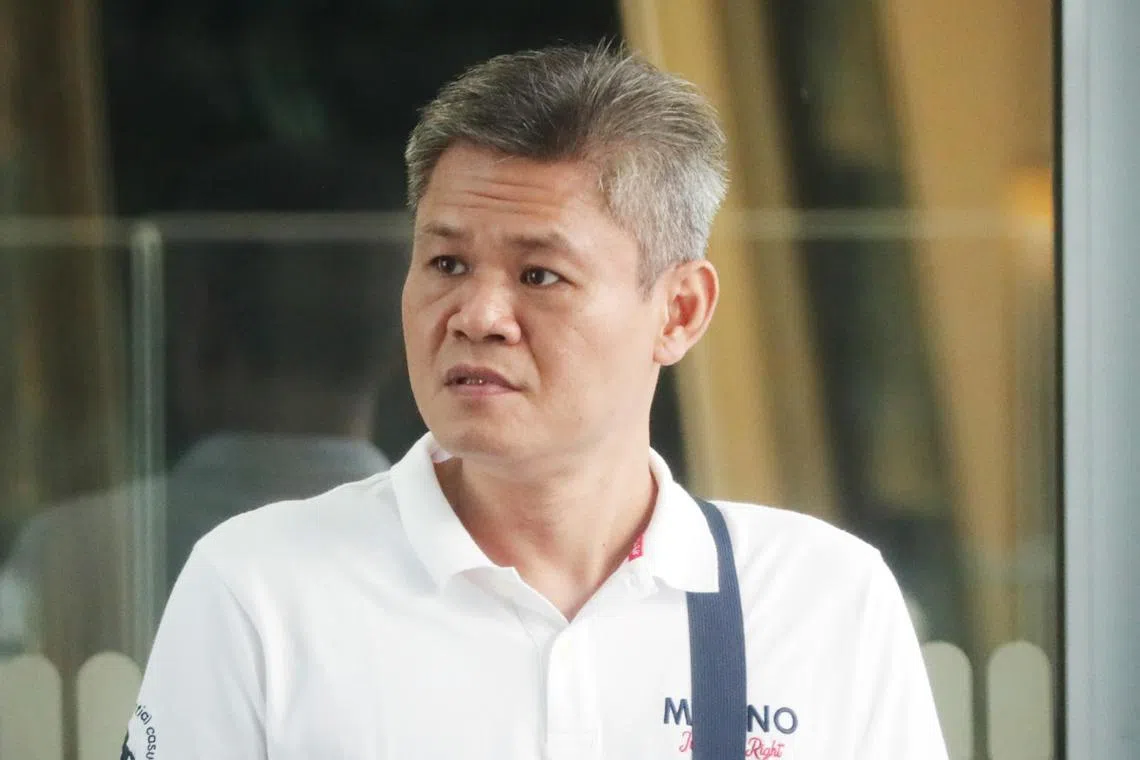Ex-employee misappropriated more than 25,000 defective iPhones, causing $6.8m loss to firm
Sign up now: Get ST's newsletters delivered to your inbox

Lim Jen Hee committed the offences with the company's logistics manager more than 100 times between 2018 and 2019.
ST PHOTO: KELVIN CHNG
SINGAPORE - A former assistant operations manager of a company worked with a woman employed there to misappropriate more than 25,000 defective iPhones from the firm, causing a loss of over US$5 million (S$6.8 million).
At the time of the offences, Lim Jen Hee’s former employer, Pegatron Service Singapore, was in the business of providing iPhone repair services for Apple in Singapore and other countries in Asia.
His offences caused Pegatron to suffer the loss, which represented the compensation sum it was contractually obliged to pay Apple.
On Monday, District Judge Kamala Ponnampalam convicted the 51-year-old Malaysian on two counts of criminal breach of trust after a trial.
Lim, who worked for Pegatron between June and December 2015, committed the offences with Ng Shu Kian, who is also known as Serene and was the company’s logistics manager at the time.
Deputy Public Prosecutor Tan Zhi Hao said that by committing the offences, the Singaporean woman earned more than $3.1 million in profit, while Lim earned profits of about $3 million.
Ng, then 40, was sentenced to nine years’ jail in 2021 after she pleaded guilty to offences including two counts of criminal breach of trust.
The offences were committed over more than 100 occasions between Jan 31, 2018, and May 15, 2019.
Lim was in charge of the production team at Pegatron when he was working for the company, while Ng was in charge of its logistics material department.
DPP Tan said that the production team received defective iPhones from the logistics material department and would inspect the devices to check their condition and functionality.
The production team might also conduct minimal repair work on certain models of iPhones.
After conducting the inspection and repair work, if any, the production team would then pack and return the iPhones to the logistics material department, which would be responsible for them.
Court documents stated that in late 2017, Lim found a buyer in Malaysia who was willing to purchase the devices.
Ng and Lim then agreed on a scheme to misappropriate the defective iPhones by exploiting security gaps in the company’s manual closing process.
Neither Pegatron nor Apple would realise that there were missing iPhones in Apple’s inventory.
Ng and Lim agreed that they would sell the misappropriated iPhones overseas to third parties, and split the profits between them.
As part of the scheme, Ng told one of her then subordinates to charge the battery of each iPhone she received from Pegatron’s repair team. The unsuspecting woman was also told to set aside any of the devices which could be powered up, and place them in a metal cabinet in the logistics office.
On Ng’s instructions, the subordinate would pack the devices into boxes and raise a delivery order for them.
Ng would then arrange for a courier company to collect the boxes of iPhones. She would personally endorse the delivery orders to get past the security checks at the Pegatron warehouse.
The iPhones were delivered to a Malaysian address, which Lim had provided to Ng.
Ng would then raise a closure request to Apple for the cases to be closed manually. This was done in a bid to prevent Pegatron or Apple from detecting the loss of the iPhones.
After receiving the misappropriated devices, Lim would be responsible for liaising with buyers overseas, and paying the profits to himself and Ng.
The offences came to light when three auditors from Apple’s compliance and security team conducted a surprise audit check on Pegatron on May 21, 2019. They discovered that there were iPhones which were unaccounted for in its inventory.
Lim is represented by lawyer Navinder Singh.
During his trial, Lim said he accepted that Ng had misappropriated the iPhones and that he had agreed to sell them for profit. However, Lim claimed he wrongly believed that Pegatron had purportedly authorised Ng to dispose of the devices and that he was allowed to sell them.
He is expected to be sentenced in July.



